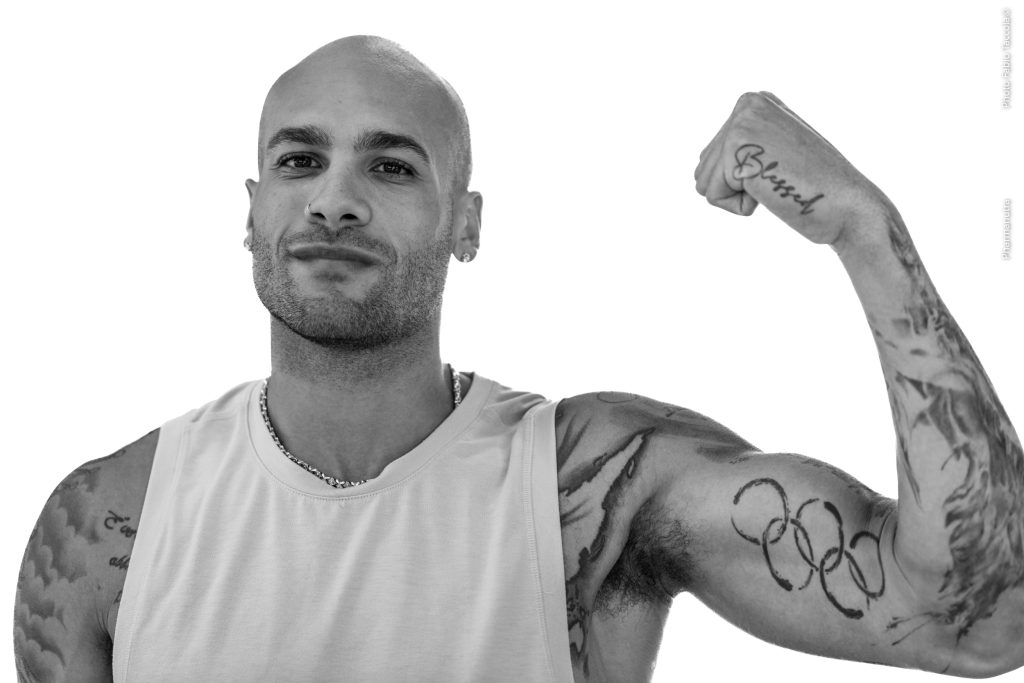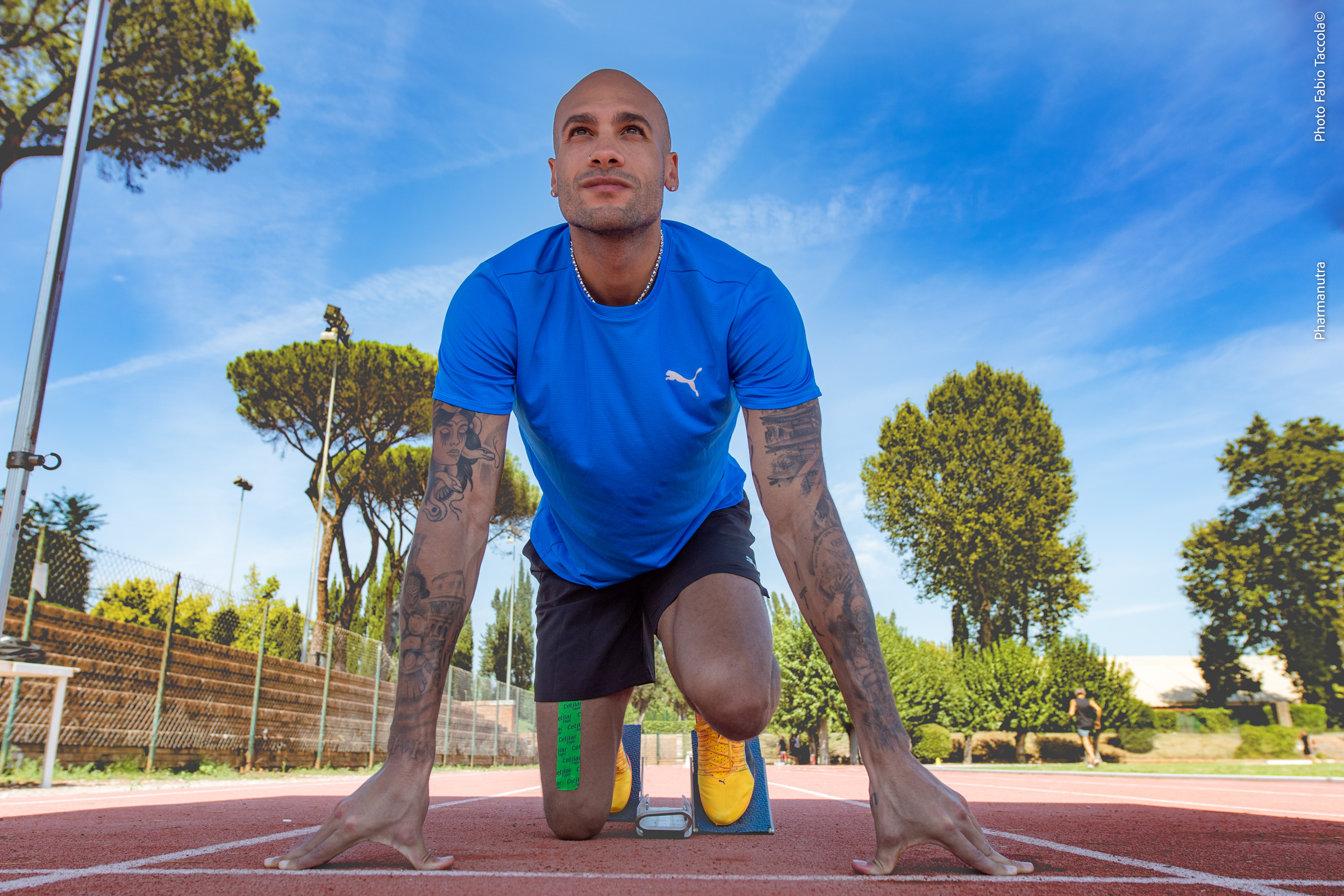Marcell Jacobs, gambling it all in less than 10 seconds

How much self-discovery is there in sport? A lot, perhaps everything, if sport becomes your occupation.
Being an athlete is a journey that begins almost by accident, when sport is just a game: afternoons spent on the pitch, a pressure release between school and your parents at home, telling you to sit at the table for dinner. It becomes something greater, much like the best love stories, when it begins to sink its roots. You realise that beyond the fun, there is a whole world to build.
The athlete’s profession is rich with nuances that are impossible to explore fully: it thrives on challenges and expectations, on pride and frustration, on dedication, sacrifice, and limits to overcome. The spotlight is perpetually focused on the result, inevitably overshadowing the months, sometimes years, spent training tirelessly to gamble it all in less than 10 seconds. As in the case of Lamont Marcell Jacobs Jr., the Italian sprinter, Olympic champion in the 100-metre race and the 4×100-metre relay at the Tokyo 2020 Games, world indoor champion in the 60-metre race in Belgrade 2022, European champion in the 100-metre race in Munich 2022 and 4×100 silver medal winner at the last Athletics World Championships in Budapest.
“The winner is the one who makes the least mistakes, because basically you can win or lose by hundredths, often thousandths of a second”. There is a lot of awareness in the words of Marcell, who is supported by Cetilar on his journey towards qualifying for the Paris 2024 Olympics.
It is the story of someone who knows how much work lies behind an explosive performance: “The 100 metres seems like a very short race, but actually there are so many aspects to work on. Four phases that require four different types of preparation: from the starting blocks to the first acceleration phase, from continuing the acceleration to maintaining endurance at the same speed. Training is the fundamental part of performance but no one, no one sees it.”
What is measured by the stopwatch is only what “others” see. The truth is that performance does not happen (only) during the race, it is built well in advance, along with ensuring mental preparation. An Olympic athlete cannot become the fastest man in the world by neglecting the importance of training, which leads him to overcome not only physical limits, but also every possible mental barrier that could slow down his journey to achieving his maximum potential.
“It is a pleasure for me to feel my body moving, working, struggling and learning new things. This is precisely the moment when the mental part comes into play, allowing you to anticipate the sensations of the race and arrive on the fateful day without having to improvise”.

Upon closer examination, the athlete’s profession reveals an inherent methodical nature, a pursuit of rituals and habits that contribute to building and sustaining the necessary levels of physical and mental well-being. Nutrition inevitably plays a crucial role in every sporting endeavour.
“I feel that when I eat well, my body automatically wakes up more active in the morning, I can train better. When I happen to go off the rails and eat some junk food I struggle to wake up, I get to the racetrack feeling tired, it takes me longer to warm up. Diet changes everything: nutrition it is as fundamental as physical training and mental preparation, because your body transforms food into energy, the same energy that allows you to perform better, resist fatigue and also recover better”.
Preparation, dedication, method and, often, even compromises, are all contained in the handful of seconds that separate the athlete from the finish line. Ultimately, the athlete’s profession revolves around a delicate balance. It involves learning from one’s own body to create the conditions necessary to embrace the competitive spirit that drives them to compete primarily against themselves.
A dimension in which, at least apparently, there is only one man on the racetrack, withstanding the considerable amount of tension and fulfilling the expectations every time. And while on the one hand it is true, on the other hand getting to set foot on the start line at the Olympic Games is in itself the achievement of a team, where each member is dedicated to pursuing a single objective.
“In interviews I always use the plural”. An ordinary spectator who thinks that running 100 metres in 9.94 seconds is an individual result, hasn’t thought about the team. “I don’t think I’m ever on the track alone, I’m there with my whole team.”
Marcell Jacobs is currently busy preparing for the Paris 2024 Olympics qualifiers. Cetilar® is supporting him on this journey to enhance his performance. His input will also be invaluable in providing crucial feedback on Cetilar®’s trauma and nutrition product lines, allowing us to continuously optimize and enhance our specialised offerings for the world of sports.